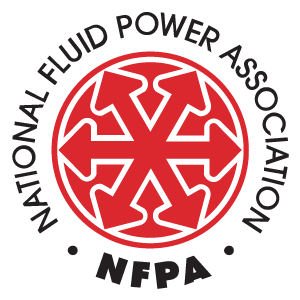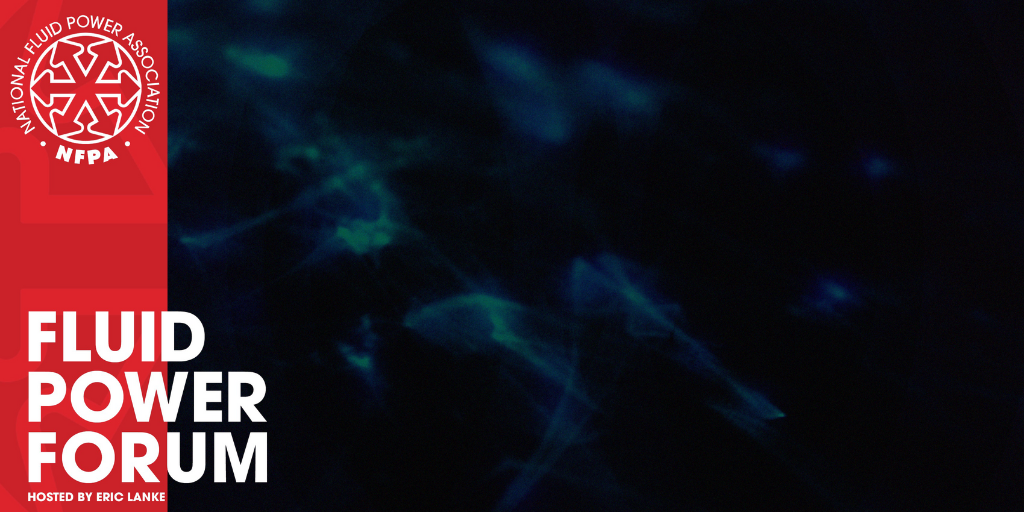In addition to the Fluid Power Vehicle Challenge teams working under a strict timeline of designing, simulating, ordering, building and demonstrating their designs, the participants exhibited qualities of leadership, communication and adaptability as we worked together to move the competition to a virtual format. While this year’s program has already resulted in interviews and new student hires, the resumes of nearly 90 students are being shared with the Pascal Society Donors that support this program and other workforce development initiatives. Support efforts like these by making a donation.
This year’s NFPA Fluid Power Vehicle Challenge was hosted in a virtual format during the event’s originally scheduled dates of April 15-17, 2020. Fifteen universities conducted their final student presentations to a panel of judges, marking the largest competition yet with nearly 150 students, university faculty, and industry representatives logging on to the various webinar presentations. NFPA worked closely with competition hosts, Bimba and IMI Precision Engineering, as the event was reconceived for a virtual format that allowed the students to compete and showcase their vehicle designs safely, as well as directly connect them to opportunities to join the fluid power workforce remotely.
In addition to shifting the venue, other aspects of the competition also had to be reimagined in response to ongoing challenges. For example, the majority of the student teams either lost campus access to their labs or had group work limitations in the month leading up to the competition, preventing them from performing tests and completing the construction of their vehicles. As a result, the judges shifted their focus from the final product to the progress each team made towards their final vehicle between the Midway Review and the final competition dates.
The accessibility of the virtual event enabled us to invite participants of the Fluid Power Clubs, a program that NFPA launched this year to engage and support university underclassmen in fluid power educational and technical projects, to learn more about the Vehicle Challenge and to meet the Pascal Society Donors that support this event and other Foundation programs.
“We’re just happy that we have the technology to bring the incredible students who have participated in this year’s program in contact with our industry mentors, judges, and hosts. Now, perhaps more than ever, these contacts and connections are extremely valuable.” -Eric Lanke, NFPA President/CEO
All students were invited to attend five live Q&A presentations led by fluid power professionals to learn more about how to get their career started in the industry. These kicked off with Bimba and IMI PE holding a special session featuring four recent graduates who are current full-time employees on engineering rotation programs. The grads spoke directly with the students and answered questions about their on-the-job experience. Over the next few days, representatives from Danfoss, Iowa Fluid Power, and SunSource all hosted career information webinars and IFPS spoke about certification and career advancement.
Fourteen judges from Bimba, Danfoss, Deltrol, FORCE America, Iowa Fluid Power, Source Fluid Power, SunSource and Trelleborg Sealing Solutions observed each of the team’s presentations, evaluating their fit for several award categories. In addition to Overall Champion, Second and Third Place, there were Judges Choice awards this year to recognize exceptional achievement in three key areas important to the competition: teamwork, use of components and design. There was a Rookie of the Year award to acknowledge the challenge new teams are faced with to start completely from scratch, plus a new award for Best Use of Pneumatics, sponsored by Bimba.
“It was encouraging to see about half the teams actually made some attempt to add pneumatics to their bikes, which is exciting to see, and we hope that [they] learned something from that experience.” – Kent Sowatzke, Bimba Manufacturing
Cleveland State took home the Overall Champion award for the second year in a row, and Tim Miller had this to say about the team’s performance:
“This was my first year in seeing any of this and really has been a great privilege to see every one of the teams and all of the processes that they went through and how they understood and what they were trying to achieve. In this case, the winning group was focused on improving the frame design, trying to reduce weight in simplifying component mountings. They wanted something that was elegant and professional, and I will say that they have achieved it. They wanted to improve a hydraulic circuit that was safe, user friendly and easy to operate, they really have done amazing things… If I saw it, I would assume that it was a professional product if it was on the marketplace so, hats off to them! – Tim Miller, Trelleborg Sealing Solutions
We asked judges and mentors to announce the winners during the award ceremony to offer comments and congratulatory notes to the teams. See below for quotes and remarks about this year’s winners and their designs.
- Overall Champion – Cleveland State University
- Second Place – University of Cincinnati
- Third Place – Purdue University
- Best Presentations – Milwaukee School of Engineering
- Use of Components – Murray State University
- Design – Purdue University Northwest
- Teamwork – California Polytechnic San Luis Obispo
- Best Use of Pneumatics – Western Michigan
- Rookie of the Year – Arizona State University
Many thanks to Bimba and IMI Precision Engineering for serving as this year’s competition hosts and for their efforts in ensuring a smooth transition to a virtual event as well as all the judges, mentors and sponsors that were engaged in the competition and the Vehicle Challenge community throughout the program year.
- Bosch Rexroth Corporation
- Danfoss
- Deltrol Fluid Products
- Eaton Corporation
- FORCE America
- Gates Corporation
- HAWE Hydraulik
- International Fluid Power Society
- Iowa Fluid Power
- JM Grimstad, Inc.
- LubeTech
- Parker Hannifin
- Source Fluid Power
- SunSource
- Trelleborg Sealing Solutions
- Walvoil Fluid Power
Congratulations to all the teams that competed in this year’s event. Click here to see the full list of participants and their final presentations.
To learn more about the Fluid Power Vehicle Challenge, contact Stephanie at sscaccianoce@nfpa.com.
2020 Award Recipients
Like this post? Share it!
Recent Posts
Update to Regional Demand Estimates Report Now Available
The U.S. Fluid Power Regional Demand Estimates Report has been updated with 2023 estimates and is now available for download. This Excel-based report is prepared for NFPA by Oxford Economics and profiles the geographic distribution of fluid power products to end-use industries by state, including fluid power sales dollars, fluid power sales percentage, and number of…
Hear from an NCAT Student Engaged in NFPA Workforce Programs
We’re excited to share a new testimonial video from David Castro Lastor, a junior mechanical engineering student at North Carolina Agricultural and Technical State University and president of the university’s Fluid Power Club. In his video, David shares how participating in NFPA programs has shaped his academic and personal growth. Through his leadership in the…
New Episode of Fluid Power Forum: Advanced Modeling Techniques and Performance Comparisons of Electrohydraulic Systems
Today, our guest is Bruno Dupuis. Bruno is a Corporate Accounts Manager at Famic Technologies Inc., the company behind the development of Automation Studio™, a circuit design and simulation software for fluid power, electrical, robotics, process control and automation projects. He presented at NFPA’s Hydraulics Conference co-located at the 2024 iVT EXPO back in August.…



